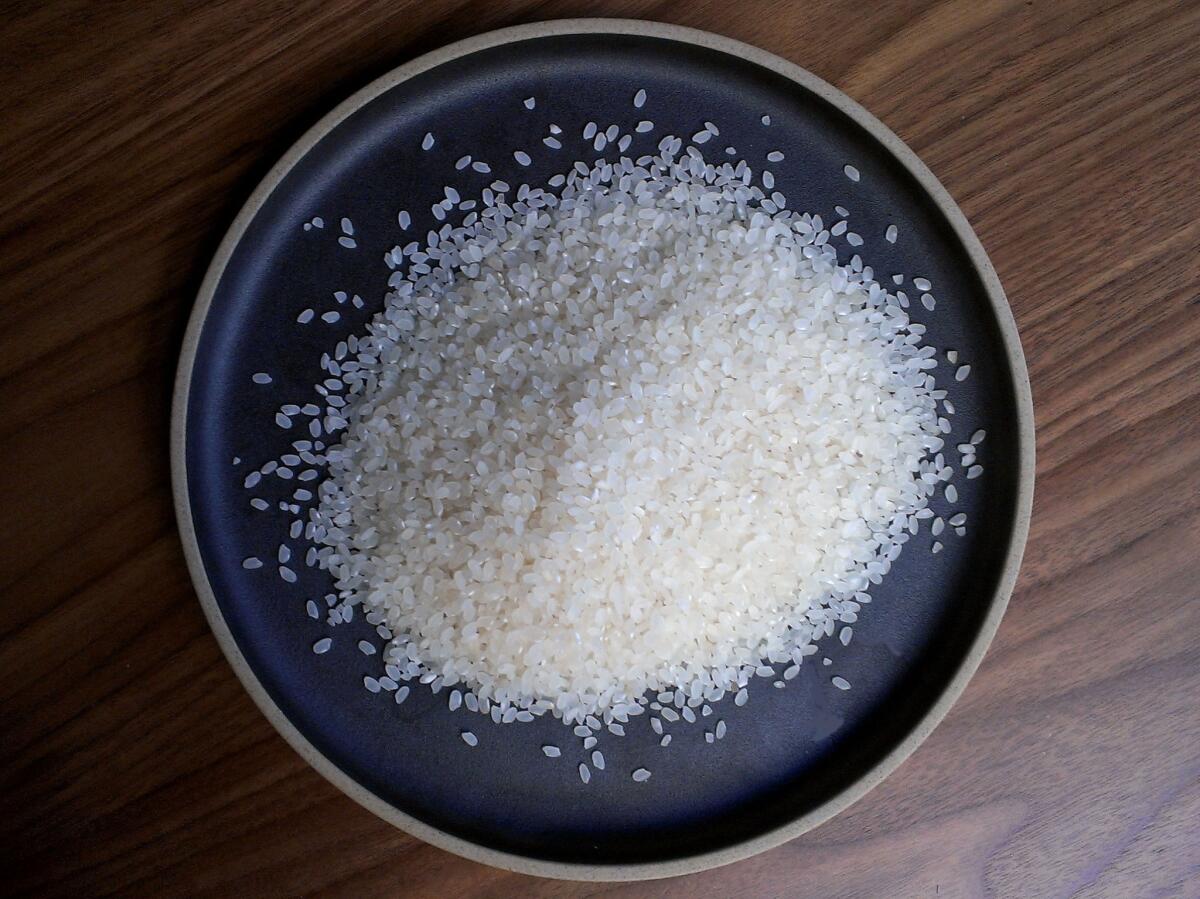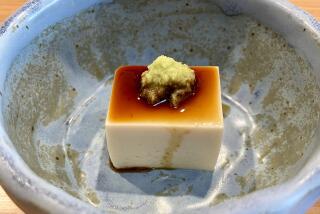A sushi chef’s dream rice: Satsuki rice, from Uruguay to L.A.

Morihiro “Mori” Onodera sold his beloved namesake sushi bar, Mori, in West L.A. nearly three years ago and has since devoted more time to one of his passion projects: rice. Not just cooking it but growing it.
Though he formerly had grown rice — a “fundamental element of Japanese food culture,” he says — for his own sushi bar in the California Delta, a couple of years ago Onodera teamed with Ichiro Tamaki to farm a Japanese cultivar in Uruguay.
The rice is grown in Rocha, east of Montevideo, under the name Satsuki and is sold in partnership with International Marine Products Inc. Rice growing conditions in Uruguay are similar to those of Japan, Onodera says. But Satsuki is harvested in the spring — as opposed to the fall in the northern hemisphere — from end of April to May. Hence, the name Satsuki, which means “May” in Japanese. May is also traditionally the month when rice buds are planted in fields in Japan.
Chefs love control, and sushi chef Mori Onodera exercises about the maximum amount of control a chef can have over food served at a restaurant.
It’s a short-grain koshihikari variety, originally cultivated in Japan and produced in areas such as Niigata prefecture. Specially polished to produce a translucent rice, Satsuki is known for its versatile, chewy texture and its sweet, nutty flavor. (IMP markets Satsuki rice as “improved koshihikari.”)
The first harvest of Satsuki rice was last year, and Tamaki can ship four 2-ton containers a month. Meanwhile, Onodera says production could triple next year.
Onodera recently cooked an all-rice dinner at Canele in Atwater Village, part of the restaurant’s Friends Cook at Canele series. Four courses of Satsuki rice included: his own oshinko, or pickles, rolled into sushi maki; salad with onigiri (rice balls), wilted wild greens, garlic chips and fried egg; risotto aglio olio; and rice pudding with oro blanco grapefruit.
Other chefs also are cooking with it. Josiah Citrin of Melisse in Santa Monica cooks it in the traditional donabe (clay pot) with black trumpet mushrooms, roasted kohlrabi, charred kohlrabi puree and chestnuts. He also uses it for poulet au riz, steamed with chanterelles and roasted chicken leg with a rich cream broth and topped with crispy chicken “oysters.”
“The rice is beautiful, sometimes it tastes like a really nice genmaicha tea,” Citrin says. “I love the texture. It doesn’t get that glutinous, mushy texture, it always has a nice light chew.
“Mori cares so much about it and is so excited about it, it makes you so excited about it. You want to handle it with more respect.”
More to Read
Eat your way across L.A.
Get our weekly Tasting Notes newsletter for reviews, news and more.
You may occasionally receive promotional content from the Los Angeles Times.










